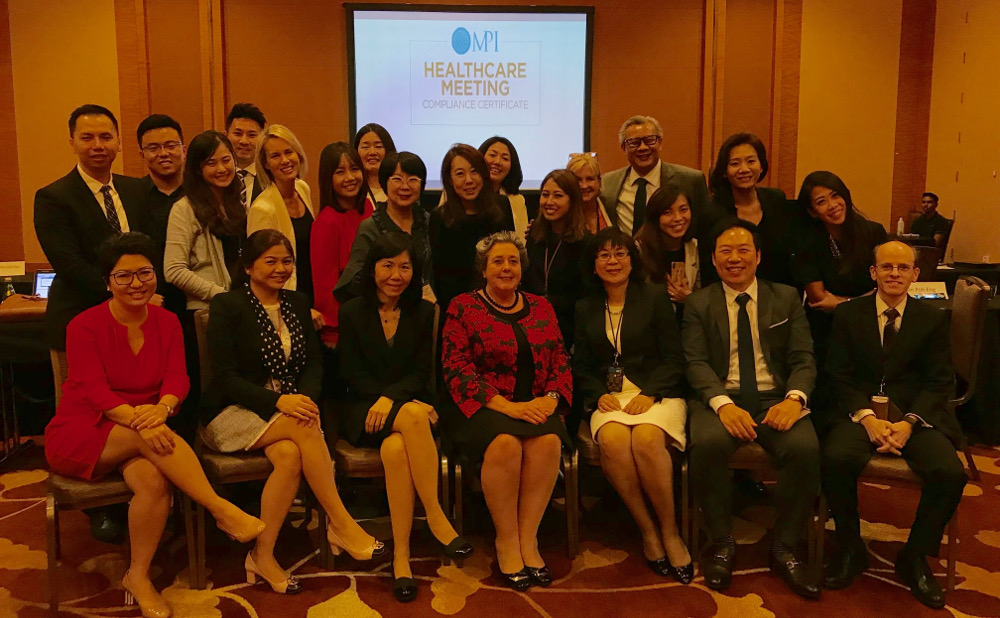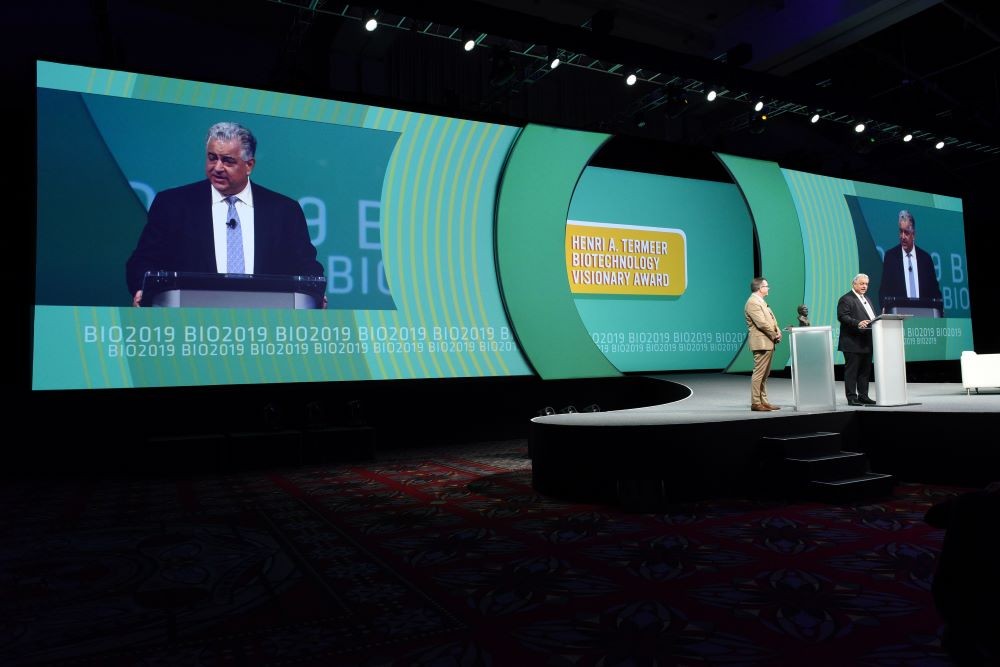The medical and pharmaceutical segment of the meetings industry poses some of the toughest challenges for planners, with different codes and regulations depending on where events are held and the country of origination of attendees.
A recent white paper from Maritz Travel pegged healthcare as a nearly $1.7-trillion industry, which translates into a high demand for meetings and events serving the sector. And while business is good, it’s also extremely complicated and fraught with the possibility of compliance violations that carry large fines.
According to medical meetings expert Pat Schaumann, president of Schaumann Consulting Group and author of the Maritz Travel Healthcare Solutions’ “Understanding the Top 5 Challenges in Medical Meetings Planning” white paper, privacy regulations are one of the biggest challenges affecting the segment.

Approaching its second year in effect, Europe’s General Data Protection Regulation (GDPR) has resulted in a wide range of businesses—meetings, conventions and events included—scrambling to shore up their data collection practices.
“Privacy has absolutely moved to the forefront with GDPR, and it affects all medical meeting planners and meeting planners period,” Schaumann said. “Even though we don’t have GDPR in the U.S., California will have it in the beginning of January [2020]. In the meetings industry that’s what we do. We collect personal data such as name, personal address, credit card numbers—all of those things that are protected by GDPR are all things we do for our work.”
Open Payment Laws
Schaumann also singled out open payments laws in the U.S., which have recently impacted medical meetings in unique ways.
“We’ve had very few repeals or changes in the open payments law since it was signed into law in 2013, but recently we’ve had a few that have impacted medical meeting planners,” Schaumann said.
Called the National Physicians Payment Transparency Program, this section of the Affordable Care Act requires biopharmaceutical companies and other applicable manufacturers to report transfers of value made to physicians and teaching hospitals. The information is made available to the public.
The definition of who is a beneficiary that falls under the reporting requirements is expanding, Schaumann explained.
“It broadens the definition of who has to be reported on to include in any transfer of value to physician assistants, nurse practitioners, clinical nurse specialists and certified nurse midwives, certified nurse anesthetists…” she said. “This is a big change and I’ve always seen this coming. Last year 38% of prescriptions were written by nurses.”
In her work leading Maritz Travel’s medical meetings effort, Schaumann detailed the following reporting requirements that impact these events:
- For calendar year 2020, individual transfers of value less than $10.97 are not reportable unless the annual total of those payments is $109.69 or more.
- Meals paid for, by an applicable manufacturer, at a physician’s office, must be reported if it is over the required minimums.
- Snacks and refreshments served at tradeshows and exhibits do not have to reported.
- Clinical reprints or reprint carriers.
- Consulting fees, including payments for serving on an advisory board.
- Payments for speaking engagements.
- Payments related to a variety of other activities and services provided by physicians, such as consulting on product development.
Certain grants to support non-accredited educational programs or other indirect payments to third parties if the manufacturer learns within a specified period of time that the organization used any portion of the grant to pay a physician. Research is reported separately and includes payments, the transfer of product, in-kind services provided by the applicable manufacturer or any other transfer of value in support of the research.
“All collected data of transfer of value to Covered Recipients will be posted on a public website annually,” Schaumann said. “Under some of the new changes, they’re combining several categories. Pay attention, medical meeting planners, to these changes that are taking place.”
Oddly enough, Schaumann said that pharmacists haven’t been included in the list of healthcare professionals that require reporting.
For a resource, Schaumann recommends visiting the following Centers for Medicare & Medicaid Services website: www.cms.gov/openpayments.
Changes in Europe’s Reporting System
The European Federation of Pharmaceutical Industry and Associations (EFPIA), which is comparable to the Department of Health and Human Services’ U.S. Centers for Medicare & Medicaid Services (CMS), has also made changes to its reporting system.
Schaumann said this is good news for pharma and medical meeting planners because it’s a major step toward global standardization.
“It’s voluntary participation—of course there are penalties for violations,” she said. “They are changing and combining their codes into one system. It was a collection of ethical rules, but now it’s going to be combined into one code. In 2019, EFPIA consolidated its three codes: HCP (health care personnel), PO (patient organizations)—similar to our teaching hospitals—and the disclosure code, which is a code similar to open payments.”
Because there are different rules and reporting requirements globally, and even between U.S. states, pharma and medical planners are faced with the monumental task of sorting through the labyrinthine regulations depending on where they hold their meetings and from where the attendees originate.
“Right now we have no standardization and no consistencies in health care reporting worldwide—that’s what makes this so hard,” Schaumann said. “Every country does this differently, every company does it differently.
“If Pfizer plans a meeting in California and physicians come in from Belgium and France, for example, you have to [know the regulations for those two countries] and how it applies to the monetary threshold set in that country,” she added. “If that meeting is taking place in France, and attendees are coming from all over the world, now it’s not based on the health care professional, but the host country, which makes it so much simpler.”
Keep an Eye on Asia
While most planners are busy enough determining the rules and regulations for U.S. states and European countries—even with the new consolidation of regulations there—Schaumann said that Asia is fast becoming a major player in the segment.
“Everybody has to keep their eye on Asia,” she said. “In 2020, Asia will become the second-largest pharmaceutical destination in the world, and it’s becoming the largest medical device region.
“The countries are coming into their own and learning about this,” she continued. “Japan is very mature in their reporting requirements; they’ve had them for a while. But in Malaysia, which is becoming a major medical meetings destination, they have nothing, so be very mindful of where and who you’re doing business with. There is increasing demand, but still a patchwork quilt of regulations.”
Continuing her industry-leading work untangling the rules and regulations surrounding pharmaceutical and medical meetings compliance, the fifth edition of Schaumann’s Breaking the Code to Healthcare Compliance book is set to be published in February 2020 and can be pre-ordered at www.meetingcompliance.com.
Schaumann also founded MPI’s Healthcare Meeting Compliance Certificate Program and is a co-founder of the online medical meetings compliance tool My Compliance Wizard. She was scheduled at the time of publication of this article to deliver a keynote address at the January 30, 2020, International Compliance event held by IPCAA (International Pharmaceutical Congress Advisory Association).

Photo: MPI’s Singapore Healthcare Meeting Compliance Certificate Class
The event explores the complexities of healthcare meeting compliance for events held by U.S.-based stakeholders and covers topics such as GDPR, proper approval channels, national limits and meal caps, among other regulations.
Maritz White Paper Findings
In 2019, Maritz Travel released the Schaumann-authored “Understanding the Top 5 Challenges in Medical Meetings Planning” white paper that details the top aggravations impacting the medical meetings segment.
Following are the findings:
Lack of Trained Medical Meetings Professionals
A $1.668-trillion industry that Maritz estimates to hold more than 1 million medical meetings annually in the U.S. alone, there is still a lack of qualified planners to manage these rules-laden meetings. Many medical meetings planners outsource onsite staffing, and some use their own pool of regular staffers, while others outsource staffing to meeting planning staffing agencies. This can result in onsite staff that are not knowledgeable of medical meeting processes and compliance restrictions.
[On topic: GDPR (Data Privacy Regulation) Ready to Bite Meetings Industry]
Lack of Compliance Rules and Reporting Requirements Standardization
Every health care manufacturer and every country and even every U.S. state has different rules for the transfer of value data collection and reporting. Challenges include the following:
- Laws, codes and regulations that differ across regions.
- Differing association guidelines (such as the PhRMA Code, AdvaMed Code, EFPIA Disclosure Code and others).
- Corporate integrity agreements.
- Individual country regulations.
- Military rules (when working with veterans’ hospitals).
Unclear and Limiting Food and Meal Caps
There are different caps and even vague language such as requiring “reasonable” food and beverage spend that challenge planners. The caps can impact destination selection, as it’s much harder to deliver adequate F&B in more expensive destinations such as first-tier cities. This is complicated by the different requirements for each country of attendee origination. Some planners get creative in upgrading their meals by working with hotels and other meeting facilities to move costs to other categories, such as room rental, to hide meal overages. Although not explicitly illegal, many properties are now refusing to allow this tactic because they fear compliance violations.
Hotels Are Turning Down Medical Meetings
A sellers’ market has resulted in hotels and other facilities turning away medical meetings because of all of the rules, regulations and risk of compliance violations inherent in them. Other properties are becoming less flexible when working with medical meetings planners.
Issues Deploying New Technology
Planners are seeking technology providers that can provide better integration between systems rather than having to work within multiple platforms and interfaces. The complicated nature of medical meetings demands a high degree of compliance regulations expertise and customer service from technology providers. Tech providers need to be able to implement new data as legislation evolves, and also update attendee data across systems every time there is a change in a record.
The full “Understanding the Top 5 Challenges in Medical Meetings Planning” white paper is available at www.maritztravel.com/healthcare.
Read Next: 3 Medical Meeting Compliance Programs for Planners






